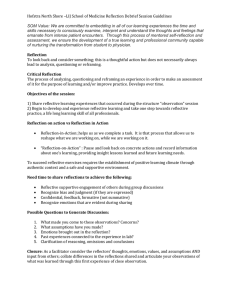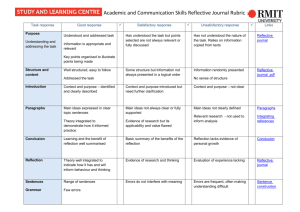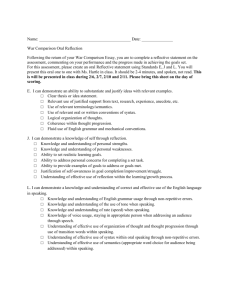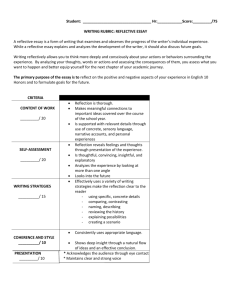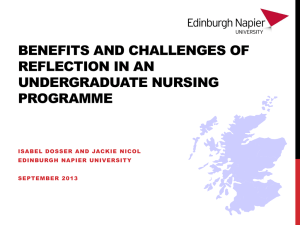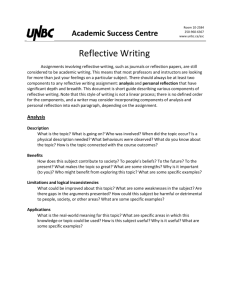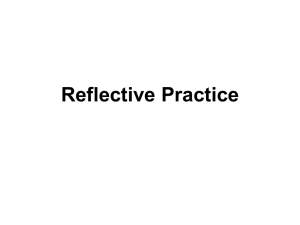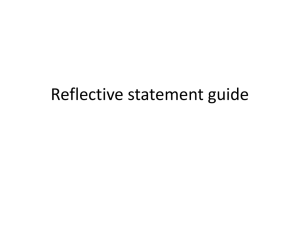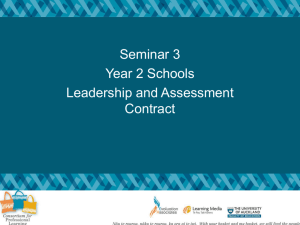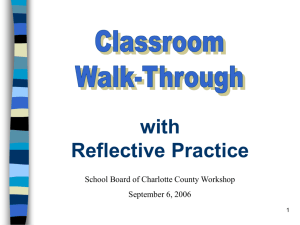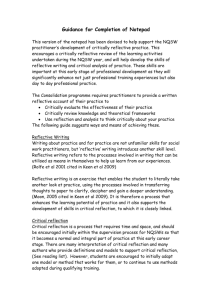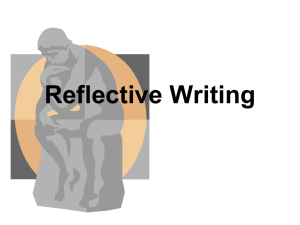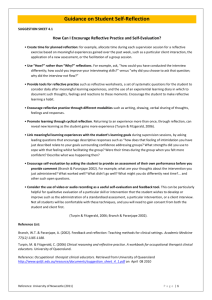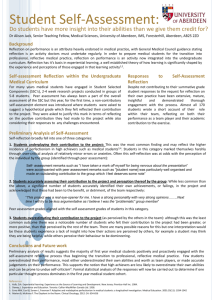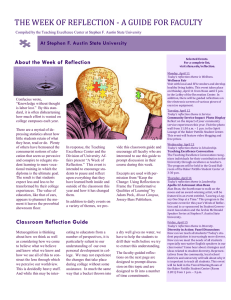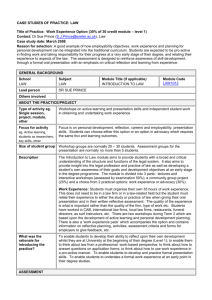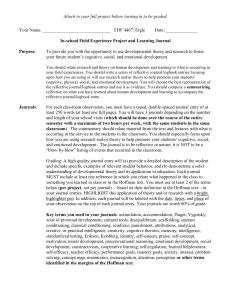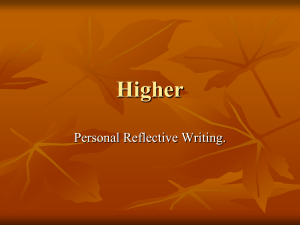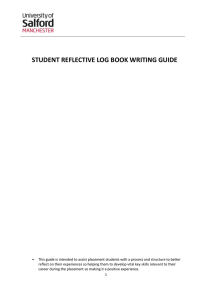What is reflection
advertisement
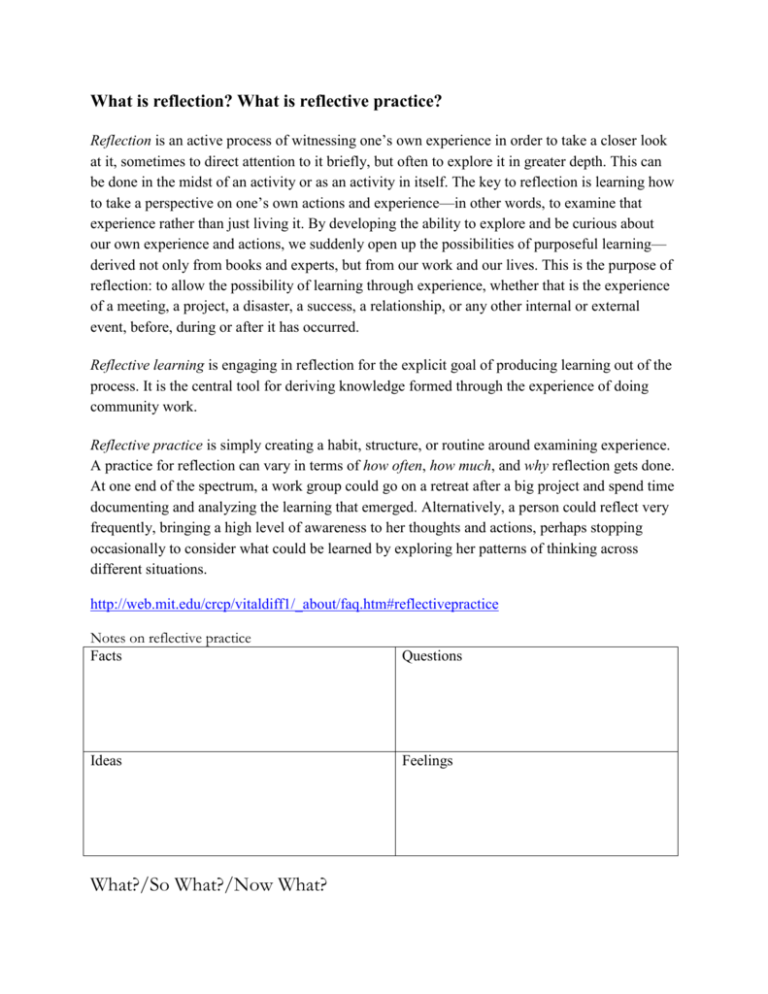
What is reflection? What is reflective practice? Reflection is an active process of witnessing one’s own experience in order to take a closer look at it, sometimes to direct attention to it briefly, but often to explore it in greater depth. This can be done in the midst of an activity or as an activity in itself. The key to reflection is learning how to take a perspective on one’s own actions and experience—in other words, to examine that experience rather than just living it. By developing the ability to explore and be curious about our own experience and actions, we suddenly open up the possibilities of purposeful learning— derived not only from books and experts, but from our work and our lives. This is the purpose of reflection: to allow the possibility of learning through experience, whether that is the experience of a meeting, a project, a disaster, a success, a relationship, or any other internal or external event, before, during or after it has occurred. Reflective learning is engaging in reflection for the explicit goal of producing learning out of the process. It is the central tool for deriving knowledge formed through the experience of doing community work. Reflective practice is simply creating a habit, structure, or routine around examining experience. A practice for reflection can vary in terms of how often, how much, and why reflection gets done. At one end of the spectrum, a work group could go on a retreat after a big project and spend time documenting and analyzing the learning that emerged. Alternatively, a person could reflect very frequently, bringing a high level of awareness to her thoughts and actions, perhaps stopping occasionally to consider what could be learned by exploring her patterns of thinking across different situations. http://web.mit.edu/crcp/vitaldiff1/_about/faq.htm#reflectivepractice Notes on reflective practice Facts Questions Ideas Feelings What?/So What?/Now What?

